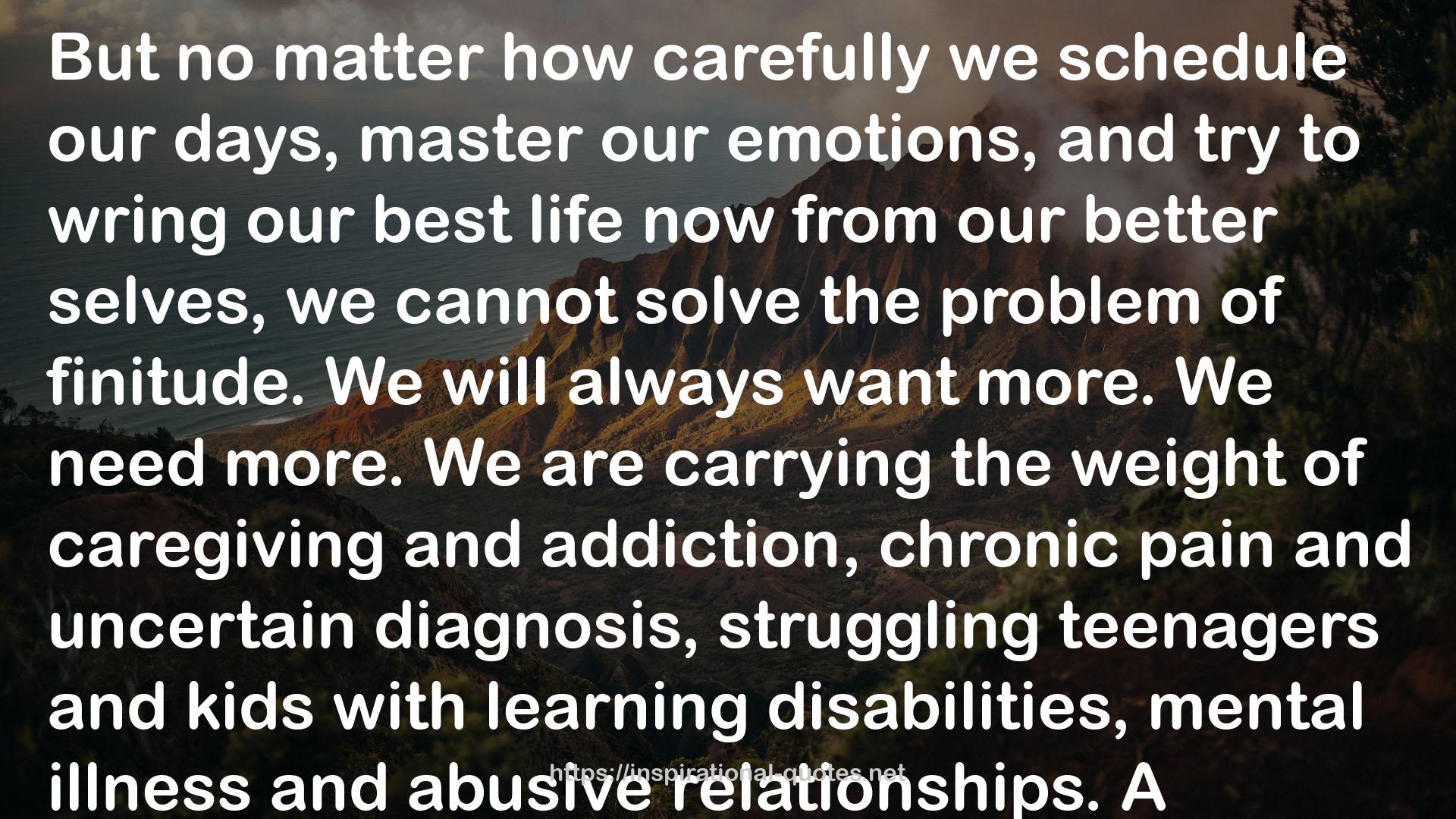" But no matter how carefully we schedule our days, master our emotions, and try to wring our best life now from our better selves, we cannot solve the problem of finitude. We will always want more. We need more. We are carrying the weight of caregiving and addiction, chronic pain and uncertain diagnosis, struggling teenagers and kids with learning disabilities, mental illness and abusive relationships. A grandmother has been sheltering without a visitor for months, and a friend's business closed its doors. Doctors, nurses, and frontline workers are acting as levees, feeling each surge of the disease crash against them. My former students, now serving as pastors and chaplains, are in hospitals giving last rites in hazmat suits. They volunteer to be the last person to hold his hand. To smooth her hair.
The truth if the pandemic is the truth of all suffering: that it is unjustly distributed. Who bears the brunt? The homeless and the prisoners. The elderly and the children. The sick and the uninsured. Immigrants and people needing social services. People of color and LGBTQ people. The burdens of ordinary evils— descriminations, brutality, predatory lending, illegal evictions, and medical exploitation— roll back on the vulnerable like a heavy stone. All of us struggle against the constraints places on our bodies, our commitments, our ambitions, and our resources, even as we're saddled with inflated expectations of invincibility. This is the strange cruelty of suffering in America, its insistence that everything is still possible. "
― Kate Bowler , No Cure for Being Human: And Other Truths I Need to Hear
